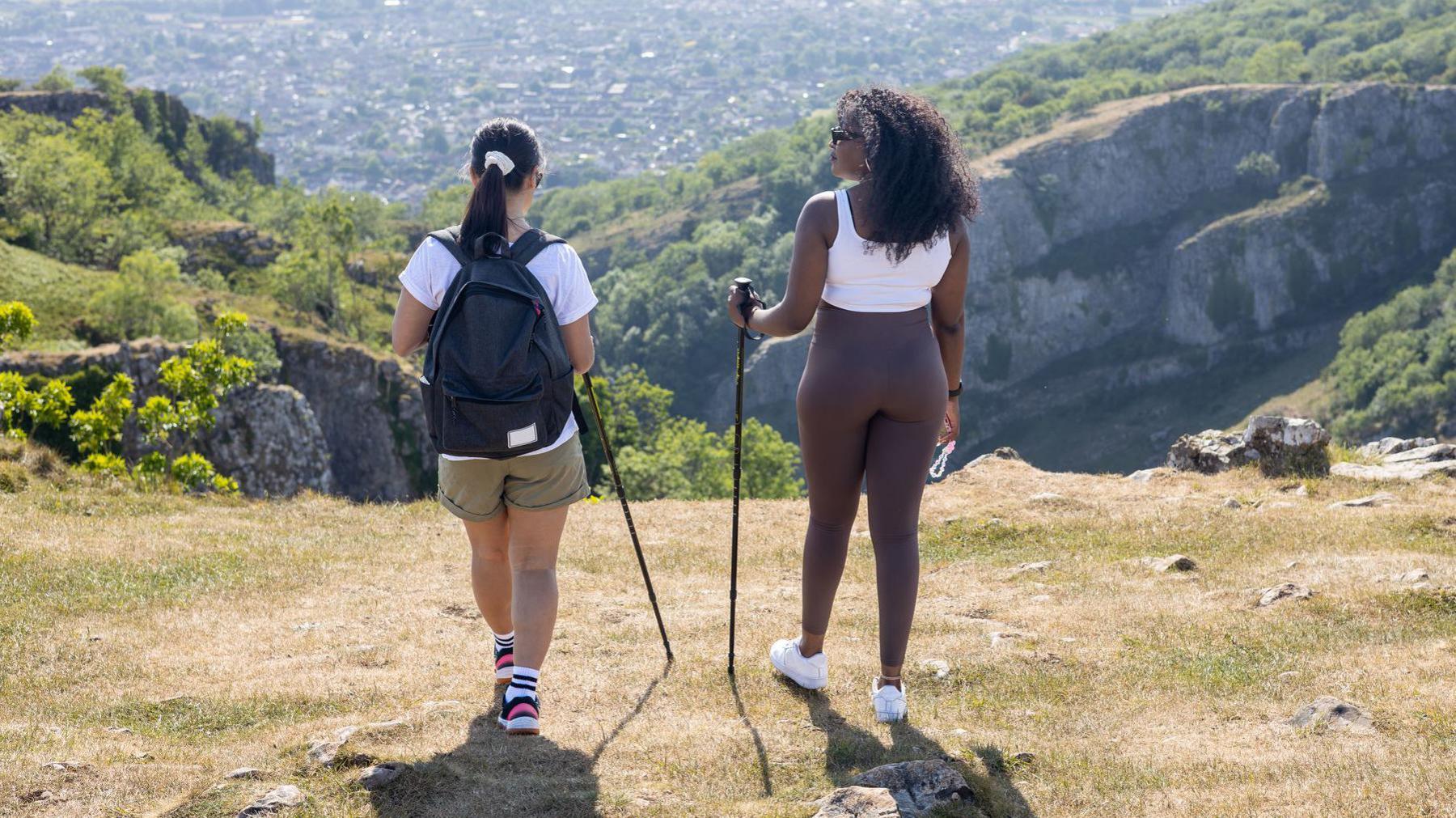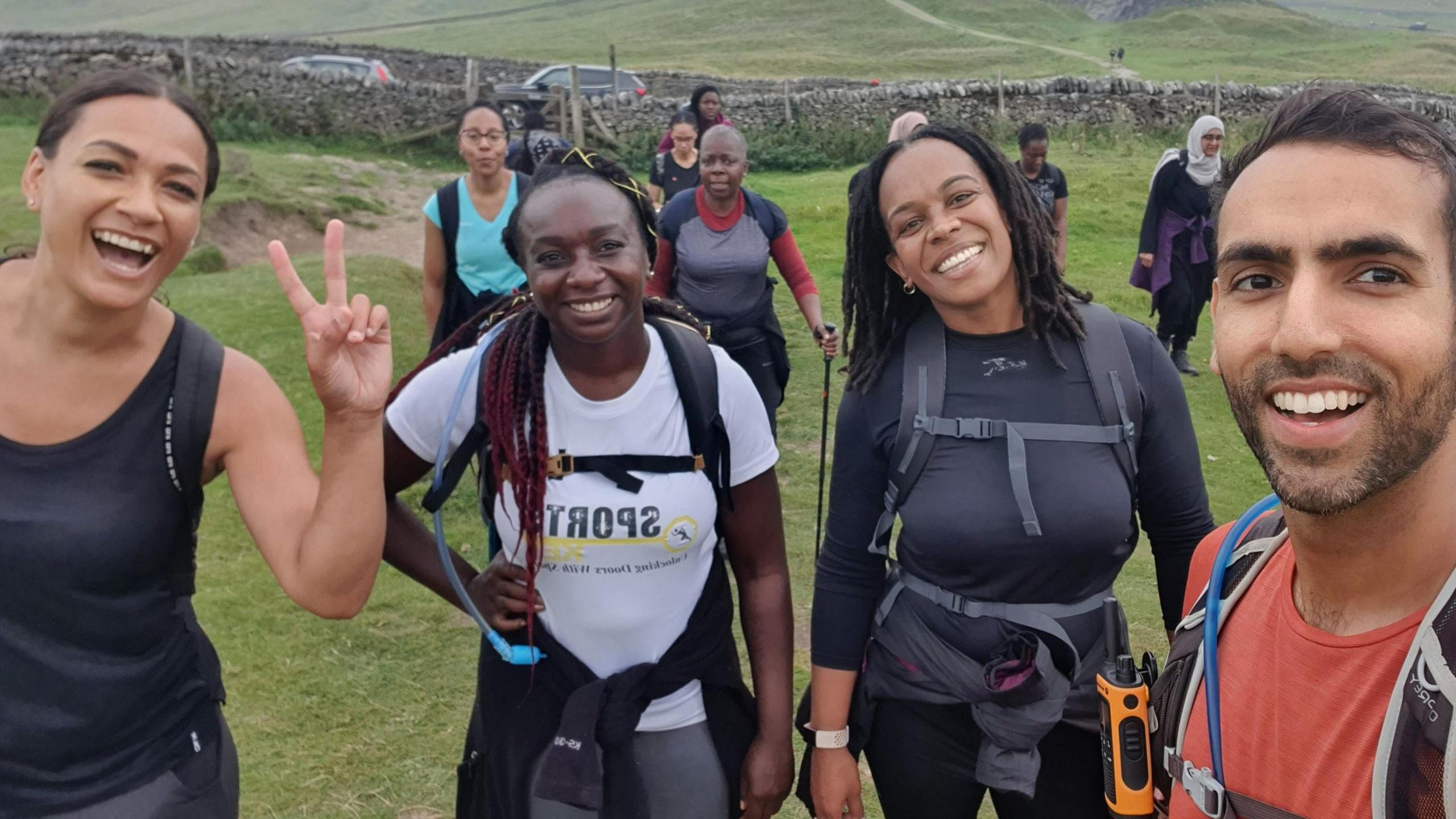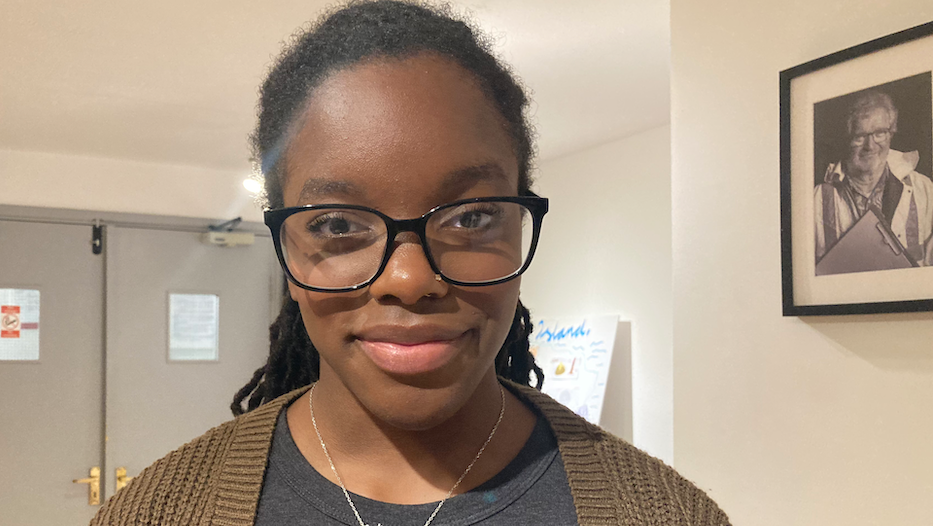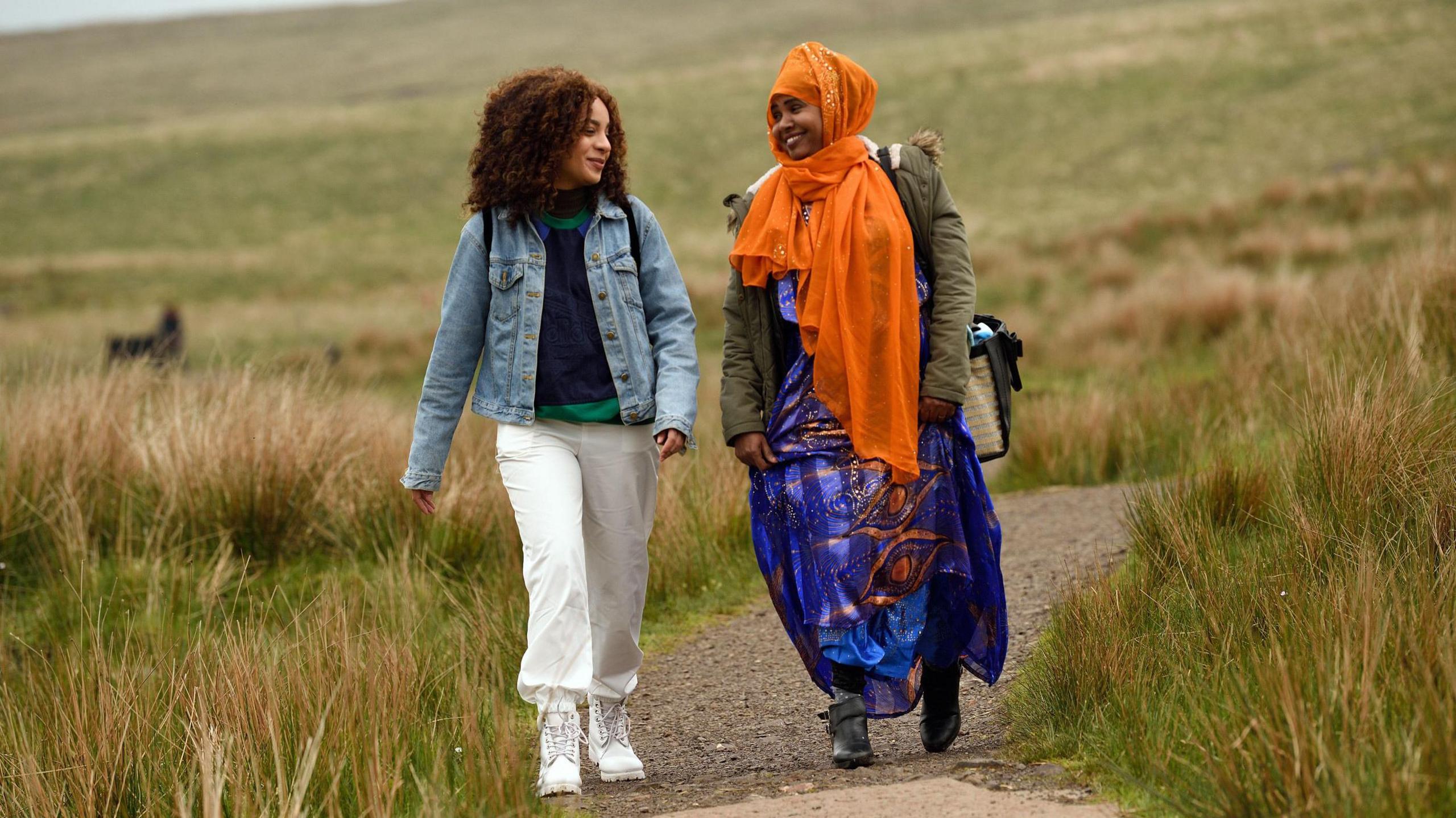Rural racism too often normalised, report finds

Many participants in the study said they still had a "deep appreciation" of the English countryside
- Published
Racist abuse is too often "tolerated or even normalised" in the English countryside, with many incidents going unreported by victims, according to a new report.
Researchers from the University of Leicester spoke to 115 people and 20 community groups over two years for their Rural Racism Project.
Their report said most participants felt "racism in rural England is getting worse", pointing to tight-knit communities, isolation and low levels of visible diversity as key.
But the Countryside Alliance, a campaign group for rural communities, said any suggestion that racism was more pronounced in the countryside was "not supported by the evidence".

Researcher Dr Viji Kuppan said the report also found many examples which "document the strength of rural communities"
Tim Bonner, the chief executive of the Countryside Alliance, which took part in the study, said "racism must be confronted wherever it arises".
But he added hate crime data suggested rural areas were often "among the least affected parts of the country".
"The suggestion that racism is so pronounced in rural areas as to justify continual special attention is not supported by the evidence which may explain why this study has shied away from examining data in favour of collating anecdotes," Mr Bonner said.
The report's authors said they did not believe data on hate crimes reported to police forces alone could reflect the true scale and impact of racial incidents in the countryside.
In its most recently published hate crime data, external, the Home Office says figures from the police should "not be seen as a good measure of prevalence since not all hate crime is reported to them".
'Hidden racism'
The rural racism report said those taking part in the study acknowledged there could be racism in both urban and rural areas, but "its form, intensity and visibility are geographically varied".
"For many participants, overt racism was a distressing and common feature of rural life," it found.
It added racist incidents "often occurred without sanction or repercussions, deepening the feeling that such behaviour is tolerated, or even normalised, and underscoring the point that much racism goes unreported".
The report went on to say "most participants felt that racism in rural England is getting worse".
However, researcher Dr Viji Kuppan said many taking part in the study from minority ethnic backgrounds still "spoke of a deep appreciation and connection to the English countryside".
He added the report also found many examples which "document the strength of rural communities in offering support, generosity and friendship to minoritised residents and visitors".
One of the groups involved in the study was Anti Racist Cumbria (ARC), a cross-community organisation working to improve relations in the county.
Niall McNulty, ARC's community development director, said the group's members acknowledged "how important our white friends, colleagues, neighbours and even strangers are in challenging racism and bringing anti-racism to the fore".
"It's not enough to be horrified by racism but then passively sit back," he added.
"We need to be challenging racism in all the ways it shows up, even the less obvious and hidden ways."
'Voiceless and vulnerable'
Many participants in the study were also concerned racism in rural schools had become "not only frequent but normalised".
The report noted "numerous" accounts of children suffering racism at school, being teased for looking "dirty", harassed with "dehumanising" animal noises or linked to terrorism simply because of their ethnicity.
Many parents told researchers they felt "voiceless and vulnerable" as rural schools were "ill-equipped" to deal with racism, and a lack of "racial literacy" among teachers meant racism was either ignored or actively played down.
The Rural Services Network (RSN), which represents local authorities in rural areas, said the report's findings were "deeply concerning and reflect experiences that cannot be ignored".
"Tackling racism in rural communities requires more than goodwill," the RSN's chief executive Kerry Booth told the BBC.
"It means ensuring that schools, local authorities, health services and other rural providers are properly resourced and equipped with the skills, training and confidence to respond effectively."
Just 4% of people living in rural areas currently identify themselves as belonging to an ethnic group other than "white", according to the Department for Environment, Food and Rural Affairs' (Defra) latest Statistical Digest of Rural England, external, compared to 16% in urban areas outside London and 46% in London itself.
The Rural Racism project's leaders said, of the 115 participants they spoke to in formal interviews, 26% identified as Asian/Asian British, 17% were Black/Black British, 16% were mixed heritage and 46% identified as White British.
A UK government spokeswoman said racism had "no place in our society".
She added: "That is why we have a strong legal framework in place to deal with the perpetrators of racist and other forms of hate crime and expect the perpetrators of these abhorrent offences to be brought to justice."
Get in touch
Tell us which stories we should cover in Leicester
Follow BBC Leicester on Facebook, external, on X, external, or on Instagram, external. Send your story ideas to eastmidsnews@bbc.co.uk, external or via WhatsApp, external on 0808 100 2210.
Related topics
- Published14 March

- Published8 November 2024

- Published20 May 2024
